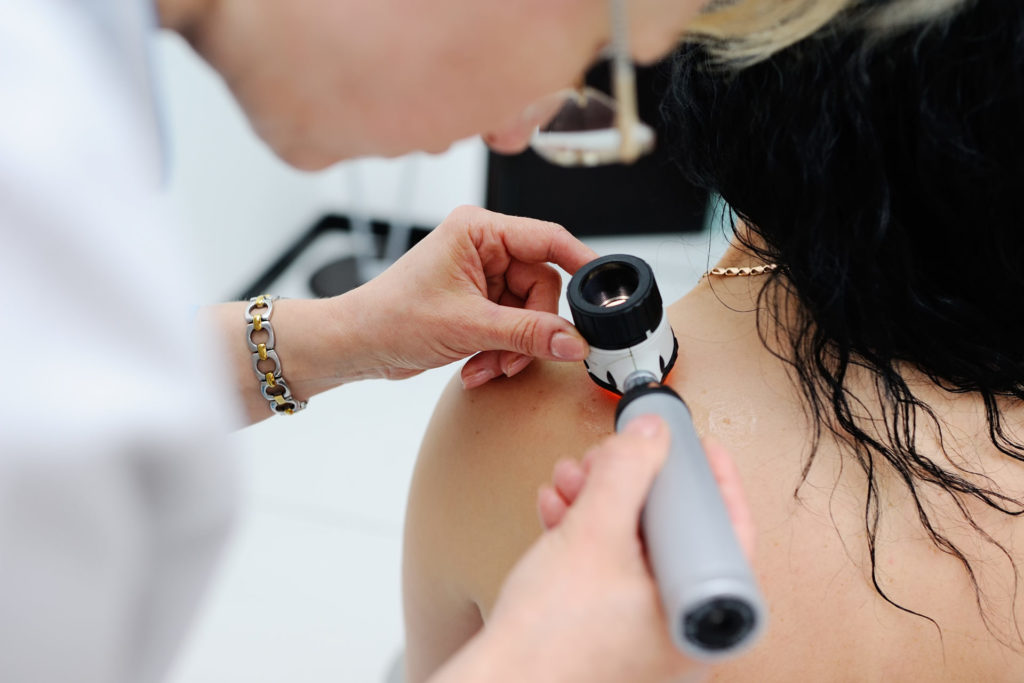Introduction
The skin is the largest organ of our body and can be affected by a large number of conditions – from benign skin lesions to skin cancers and rashes.
Our experienced dermatology doctors are able to diagnose and treat a full range of skin problems. Our doctors can treat inflammatory skin conditions such as acne, rosacea, eczema and psoriasis, to name but a few. They can also treat skin cancers and pre-malignant conditions.
Our doctors are able to perform investigations which may be needed to aid diagnosis. These investigations may include a biopsy (taking a small sample), surgical excision (removal of a whole lesion), blood tests or scans.
During your consultation, our specialist consultants will discuss your concern and appropriate treatment with you.

Ready to book now? Get in touch to discuss your needs and decide on the best course of treatment for you.
Ready to book now? Get in touch to discuss your needs and decide on the best course of treatment for you.
Excision of skin lesions
If a skin lesion is troublesome, for example a cyst which has been getting infected, or if a skin cancer is suspected, then our doctors are able to remove these surgically.
What does the operation involve?
The doctor will explain how he/she will remove the skin lesion. They will inform you of possible risks and side effects. Once your written consent has been obtained, the anaesthetic will be gently injected around the lesion. Once the doctor is happy that the anaesthetic has taken, then the area will be excised. Usually, the skin is then stitched together and you will be advised on when the stitches should be removed as well as how to look after your wound. On average, the procedure will take 30 minutes but may be longer depending on the size and complexity needed to remove the lesion and the complexity of the repair.
What complications can happen?
Risks or complications can happen with any surgery. The most commonest ones are:
- Pain immediately after the procedure possibly lasting a few days
- Bleeding
- Infection
- Unsightly scarring
- Wound breakdown, if the skin fails to heal
- Numbness in the area of surgery which may be permanent – this is because small nerves in the skin can get damaged during the surgery
- Incomplete excision – this can happen with some skin cancers as the edges of the tumour may not be visible to the naked eye.

How soon will I recover?
You should be able to go home a short while after the operation. We would strongly advise that a friend or relative takes you home and that you do not drive yourself home.
The doctor will advise when you can return to work as this will depend on the type of work you do and the type of surgery you had. The doctor will also advise if you need to be careful with your usual activities – for example swimming or sport.
We are happy to give advice and discuss on any surgery we plan to do.




